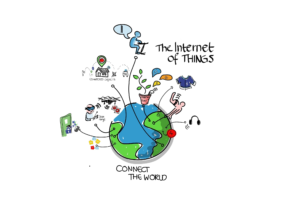The Latest Breakthroughs in Artificial Intelligence You Need to Know
Artificial intelligence breakthroughs are rapidly transforming our world, offering unprecedented opportunities for innovation and progress. This rapid evolution demands understanding to effectively navigate the future. This article explores the latest advancements in artificial intelligence, examining their impact, implications, and potential solutions to common challenges. We’ll delve into machine learning, generative AI, and explore how these advancements are revolutionizing everything from healthcare to entertainment. We’ll also address some of the challenges and ethical considerations surrounding AI development and deployment. The structure of this article will be as follows: a comprehensive overview, individual in-depth sections on specific breakthroughs, a summary of the key takeaways, and frequently asked questions to help you grasp the essential elements of this transformative technology.
1. The Rise of Generative AI
1.1 Understanding Generative Models
Generative AI models, like large language models (LLMs), are revolutionizing content creation and problem-solving. These models learn from massive datasets to generate new, original content, such as text, images, and code. Examples include generating marketing copy, composing music, or even producing realistic images from simple text descriptions. This ability to create novel content opens new frontiers in various fields, from creative writing to software development. A key aspect of this is understanding how these models learn patterns and relationships from the data, which then empowers them to extrapolate and produce new, unique output.
1.2 Real-World Applications of Generative AI
Generative AI is impacting various industries. In the creative sector, models are assisting artists and designers with generating visual concepts or producing musical compositions. In business, AI models are assisting in tasks like composing marketing copy or creating product descriptions. Even in scientific research, these AI models are being used to synthesize and analyze data. One example of real-world application is in personalized education, where AI tutors can adapt to individual student needs, tailoring learning experiences based on performance and providing personalized feedback.
2. Advancements in Machine Learning Algorithms
2.1 Deep Learning Techniques
Deep learning models, a subset of machine learning, use artificial neural networks with multiple layers to analyze complex data. These models are achieving impressive accuracy in tasks such as image recognition, natural language processing, and speech recognition. Deep learning has significantly impacted healthcare by enabling the development of more accurate diagnostic tools, enabling early disease detection, and enhancing the treatment of chronic illnesses. For example, deep learning algorithms are used in medical imaging to identify anomalies or patterns that might be missed by human observation.
2.2 Reinforcement Learning
Reinforcement learning models are trained by interacting with an environment and receiving rewards or penalties for their actions. This approach is particularly useful for tasks requiring decision-making and strategic planning, such as playing games or controlling robots. One particular example of this is in robotics where reinforcement learning is being used to teach robots to navigate complex environments and perform specific tasks with greater dexterity and efficiency.
3. AI Ethics and Societal Implications
3.1 Bias and Fairness in AI Systems
One key challenge in the development and deployment of AI systems is ensuring fairness and mitigating bias. AI models trained on biased datasets can perpetuate and even amplify existing societal biases. This is a critical aspect to address in the ongoing development of AI. Addressing this requires careful data curation and algorithm design to mitigate biases from training data.
3.2 The Future of AI Development
The rapid advancement of AI demands careful consideration of its societal implications. We need to focus on responsible development and deployment that prioritizes ethical considerations, safety, and transparency. This includes regulations, guidelines, and ongoing research in the area of AI ethics. These discussions and approaches are essential in order to ensure AI is used in a beneficial way.
4. The Impact of AI in Specific Industries
4.1 AI in Healthcare
AI is revolutionizing healthcare by enabling the development of more accurate diagnostic tools, improving the efficiency of medical research, and enabling better patient care. For instance, AI systems are being used to analyze medical images and identify potential health issues earlier and more accurately, leading to more proactive treatment plans.
5. The Future of AI
5.1 Emerging Trends in AI
The future of AI promises exciting breakthroughs in areas like quantum computing and the development of even more sophisticated machine learning algorithms. These advancements hold the potential to revolutionize fields like materials science, drug discovery, and financial modeling.
6. The Role of Data in AI
6.1 Data Quality and Quantity
AI systems rely heavily on data. High-quality and abundant datasets are crucial for training accurate and reliable AI models. The collection, curation, and management of data are essential components in the development and deployment of successful AI systems. The ability to leverage large datasets is a critical component.
7. Challenges and Limitations of AI
7.1 Computational Resources
The processing power needed for training complex AI models can be significant. Accessing and managing substantial computing resources remains a key challenge.
8. The Importance of Ethical Considerations
8.1 Accountability and Transparency
The development and deployment of AI systems must prioritize ethical concerns. Ensuring accountability and transparency in AI systems is essential.
9. The Role of AI in Shaping the Future
9.1 The Transformation of Industries
AI is reshaping industries by automating tasks, increasing efficiency, and creating new opportunities. These advancements will transform industries for the better and help generate innovative solutions that will shape the future in a positive way. This will involve focusing on automation and optimization in processes. This is expected to positively impact industries in the long run through improved efficiency and overall innovation. We need to focus on the potential to improve processes in diverse fields and encourage ongoing research that will address relevant concerns and opportunities for future innovation. The use of AI will further change the economic landscape by generating new job opportunities and boosting economic prosperity. We must address ethical considerations, including bias, fairness, and privacy, to ensure the benefits of AI are shared across society. This includes ensuring the safety, security, and responsible development and implementation of this technology.
In conclusion, the latest breakthroughs in artificial intelligence are reshaping industries and our daily lives. From advancements in machine learning to the rise of generative AI, the possibilities seem endless. This rapid evolution demands proactive learning and adaptation. By staying informed and embracing these transformative technologies, we can harness their potential for progress and societal benefit. To dive deeper into these exciting developments, explore resources like academic journals, industry blogs, and online courses. Your journey to understanding the future of AI begins now.
Share this content:














Post Comment